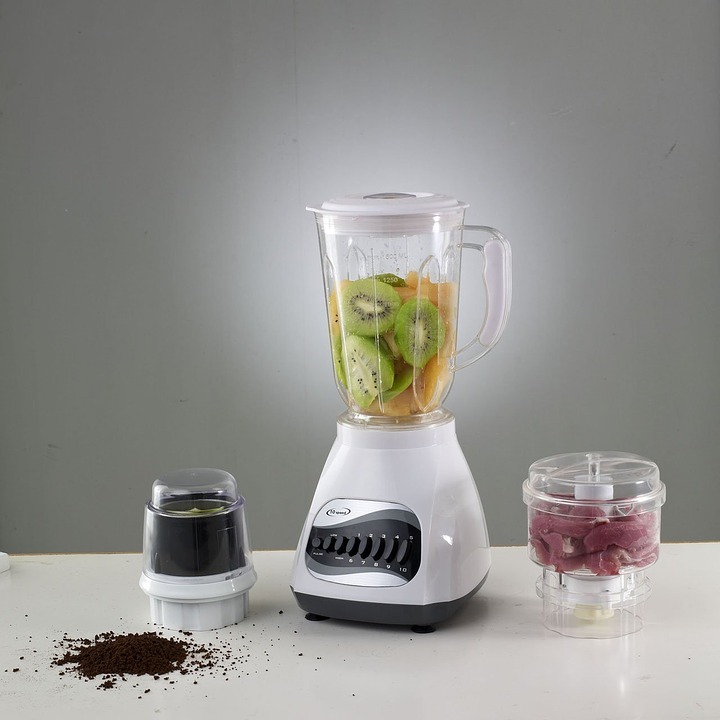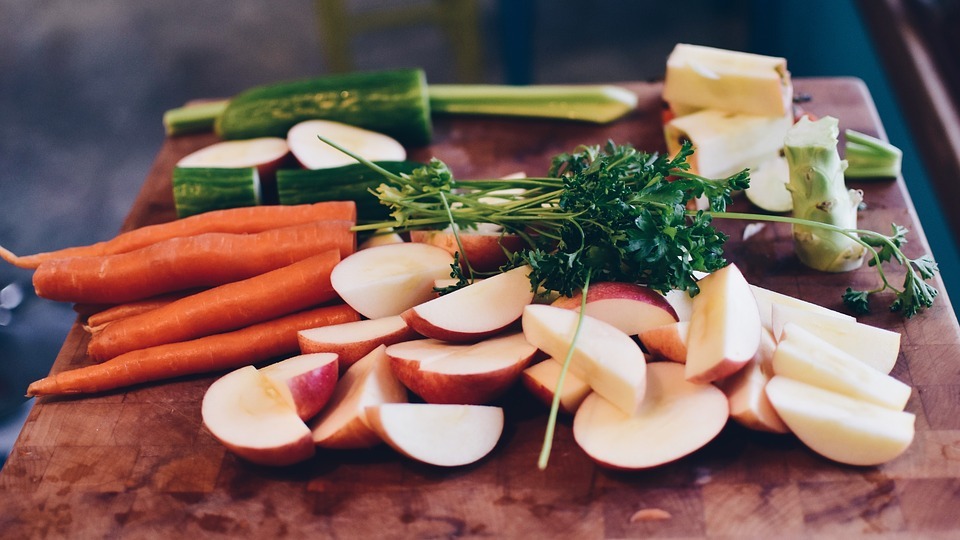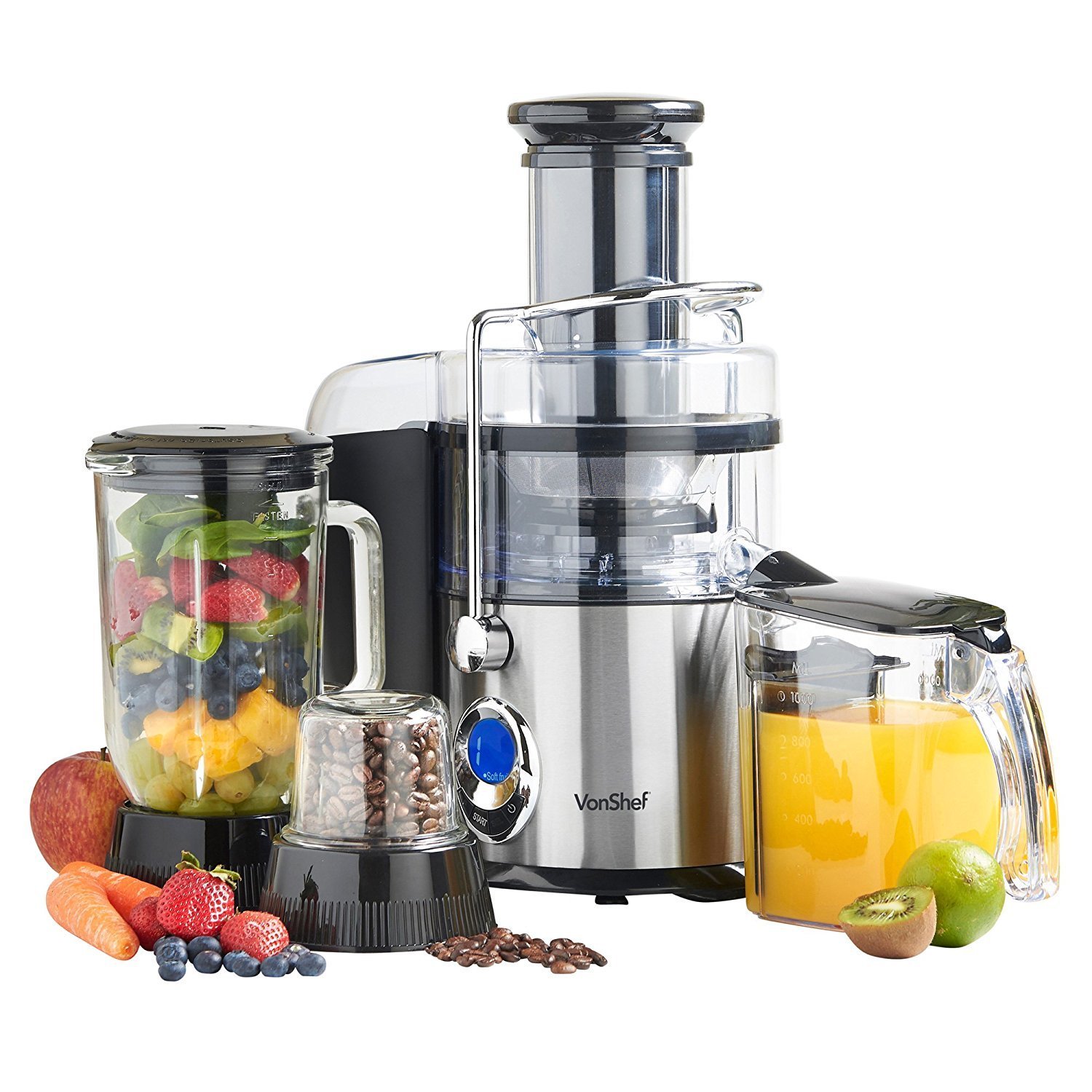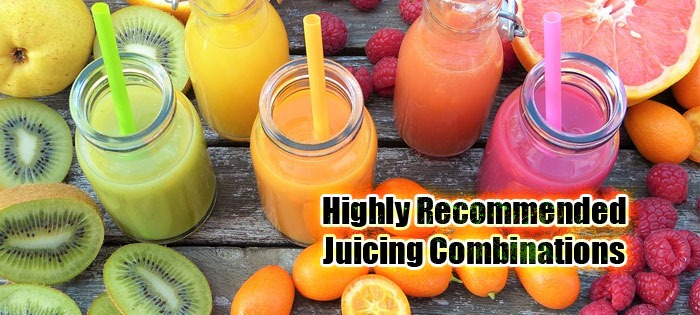Do Juicing Methods Cause Vitamin Loss?
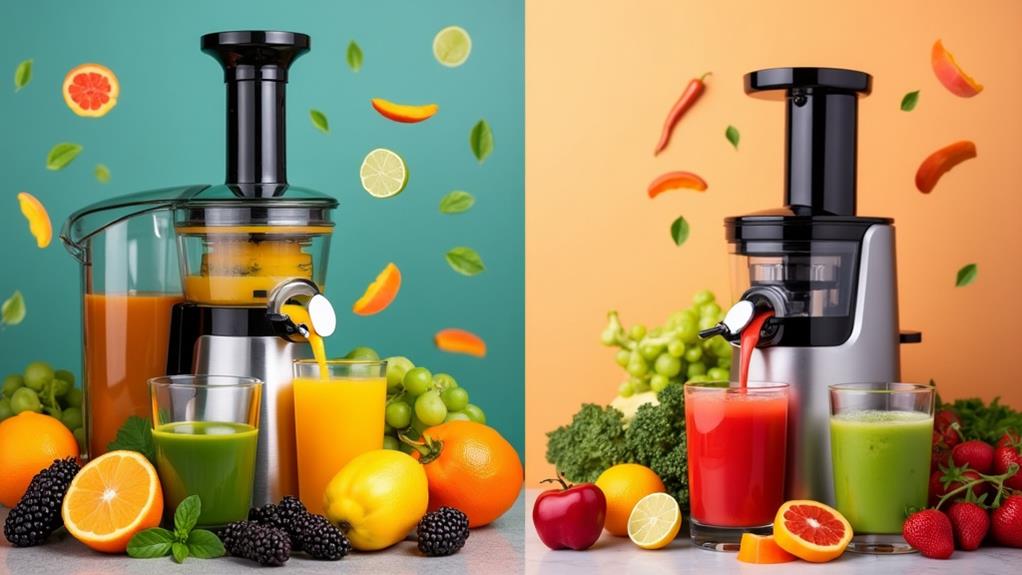
Have you ever wondered if juicing methods affect vitamin retention? Different juicing techniques, such as centrifugal and cold-press, can significantly influence the nutrient content of your juice. Centrifugal juicers may produce heat and cause oxidation, potentially degrading sensitive nutrients. In contrast, cold-press juicers aim to preserve these nutrients. However, the way you store and consume the juice also plays a crucial role. So, what can you do to maximize nutrient retention in your juice? Let's explore the details of nutrient retention and juicing efficiency.
Juicing Vs. Whole Produce
When comparing juicing to consuming whole produce, it's essential to recognize the significant differences in their nutritional profiles and health impacts. Juicing fruits and vegetables removes up to 90% of insoluble fiber, which is crucial for numerous health benefits, including aiding nutrient absorption. In contrast, whole fruits and vegetables retain their full range of nutrients, offering a more balanced nutritional profile and maximizing health benefits.
Although juicing can increase your intake of vitamins and antioxidants, it often leads to vitamin loss due to the removal of fiber and other components. This can result in rapid blood sugar spikes, as the absence of fiber means your body absorbs sugars more quickly. Additionally, consuming whole produce is associated with lower risks of chronic diseases, whereas relying solely on juices might cause nutritional deficiencies and imbalances over time.
Furthermore, the nutritional absorption from juices is not significantly better than from whole foods, and some key nutrients may be lost during the juicing process. Therefore, incorporating whole fruits and vegetables into your diet is generally more beneficial for long-term health.
Impact of Juicing Methods
When evaluating the impact of juicing methods, it's crucial to understand how different juicers affect nutrient retention. Cold-press juicers are superior in preserving vitamins and minerals compared to centrifugal juicers. This is because cold-press juicers operate at lower speeds, minimizing heat and oxidation, which are key factors in vitamin degradation. However, both methods result in significant fiber loss, which is essential for digestive health.
Freshly made juice retains higher levels of antioxidants and enzymes, making it best to consume immediately. Stored juice loses these beneficial compounds over time, so proper storage is essential. Use airtight containers and refrigerate your juice to minimize nutrient loss and prevent bacterial growth.
The quality of your produce is also important. Darker, more colorful fruits and vegetables generally contain higher levels of antioxidants, enhancing the nutritional value of your juice. By choosing high-quality produce and optimizing storage practices, you can maximize nutrient retention and enjoy the benefits of fresh juice.
Nutrient Retention Strategies
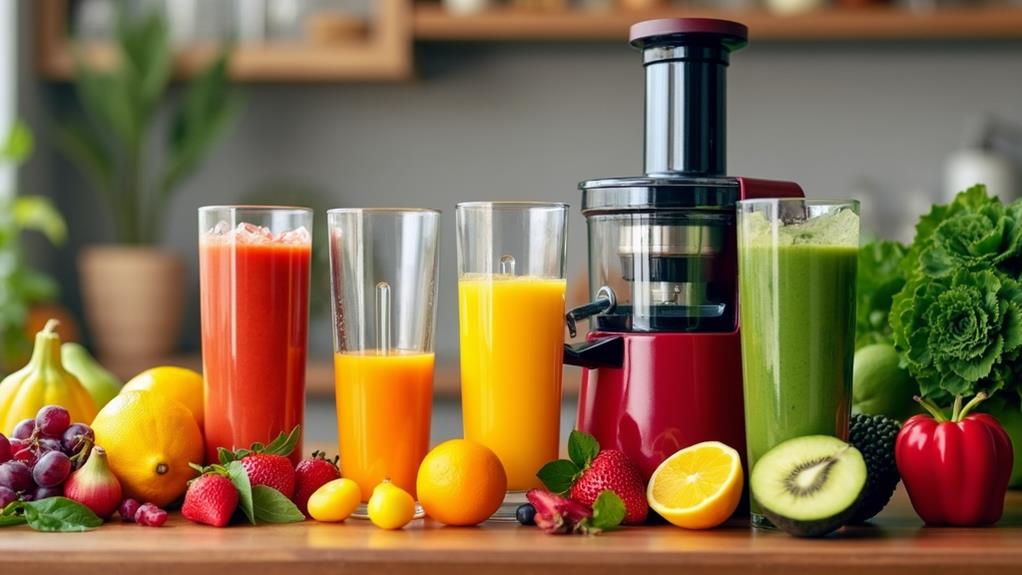
Understanding the impact of juicing methods is crucial for optimizing nutrient retention. Cold-pressed juicers are particularly effective in preserving vitamins and nutrients due to their slower extraction process. This method helps maintain sensitive vitamins like vitamin C and antioxidants.
To minimize nutrient loss, consume your freshly made juice immediately. If storage is necessary, use an airtight container to limit exposure to air and light, both of which can degrade nutrients. Reintroducing the pulp back into your juice also helps retain fiber and additional nutrients often discarded during juicing.
Blending fruits and vegetables, rather than juicing them, can further improve nutrient retention by preserving fiber while still providing essential vitamins and minerals. Using minimal water and shorter processing times can significantly enhance the retention of sensitive vitamins such as vitamin C.
Health Risks of Juicing
Juicing might seem like an easy way to boost your nutrient intake, but it comes with notable health risks. When you juice fresh fruits and vegetables, you often lose up to 90% of insoluble fiber, which is essential for digestive health and maintaining satiety. This fiber significantly affects how your body processes sugars and nutrients.
Consider these health risks:
- Rapid Blood Sugar Spikes: The concentrated sugars in juices can cause rapid blood sugar spikes, leading to metabolic issues and unhealthy cravings.
- Nutritional Deficiencies: Juice cleanses often lack essential nutrients like protein and healthy fats, making them nutritionally inadequate and potentially leading to deficiencies over time.
- Contamination Risk: Freshly made juices can harbor harmful bacteria if not consumed quickly, posing health risks, especially for high-risk individuals.
Additionally, relying on juices as a primary source of nutrition can slow your metabolism and lead to rebound weight gain once the cleanse ends. Despite the antioxidants found in fresh fruits and vegetables, the loss of vitamins and absence of crucial nutrients make juicing a risky health strategy. Remember, balanced nutrition requires more than just liquid calories.
Safe Juicing Practices
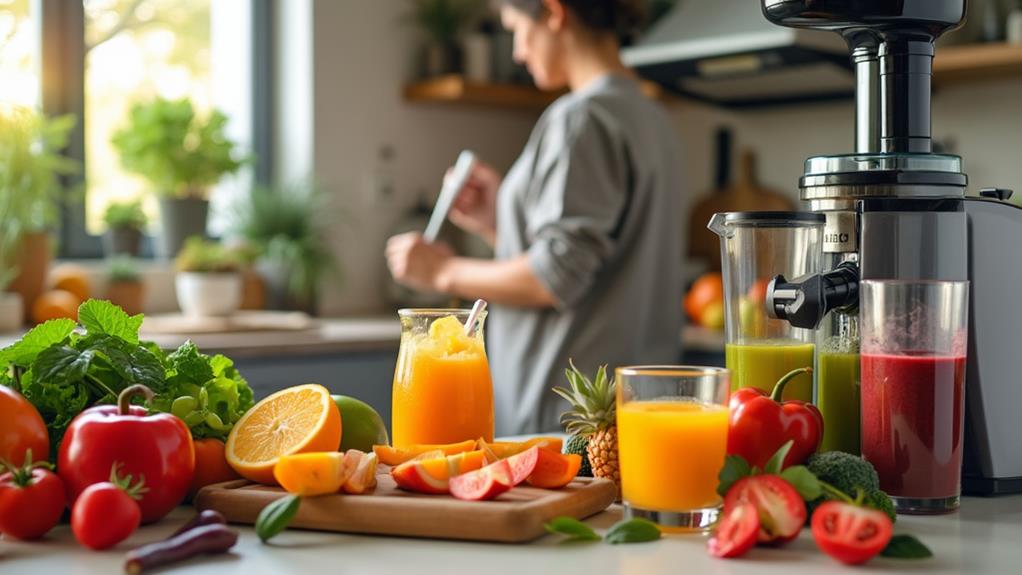
To enjoy the benefits of juicing without compromising your health, follow these safe practices to ensure your homemade juices are nutritious and safe to consume. Consume fresh juice immediately to maintain its vitamin content and minimize bacterial growth. If you can't drink it right away, store it in airtight containers in the refrigerator to preserve nutrients and reduce spoilage risks.
Proper hygiene is crucial. Clean your juicing equipment thoroughly before and after each use to prevent contamination. Cold-pressed juicers are recommended because their slower extraction process retains more nutrients and enzymes compared to centrifugal juicers, providing a more nutrient-rich juice.
Be mindful of who is consuming the juice. Individuals with compromised immune systems should avoid unpasteurized juices to prevent foodborne illnesses. By adhering to these safe practices, you can enjoy fresh, homemade juices that are both delicious and packed with nutrients, without jeopardizing your health.

